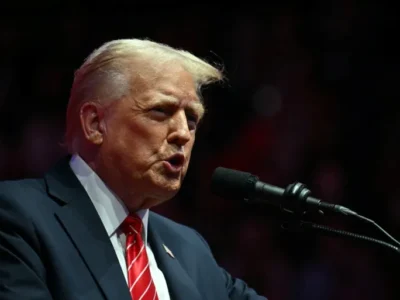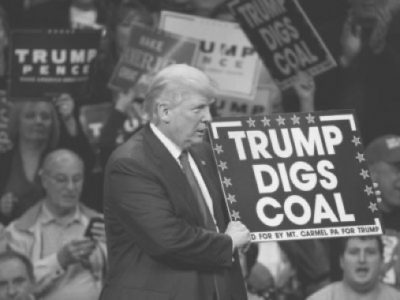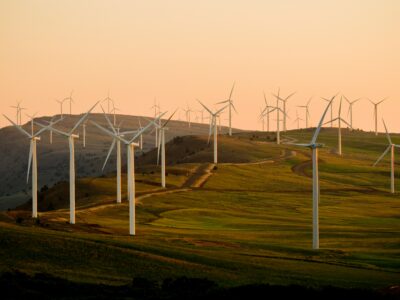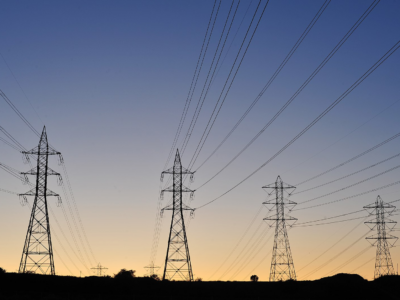Federal Climate Policy
The Good, the Bad and the Utter Contempt
The Drain is a weekly roundup of climate and environmental news from Legal Planet.
The news this week has me remembering my grandpa teaching a young me to turn off the tap while brushing my teeth. (Hey, I was an ignorant East Coast kid.) This was in California’s Central Valley around 1990 when drought conditions flared and the federal government cut water deliveries. What was the news story? What …
Continue reading “The Good, the Bad and the Utter Contempt”
CONTINUE READINGThe Chutzpah is Stunning
The Trump Administration is suing to block state climate lawsuits based on Clean Air Act Preemption.
If nothing else, you have to give credit to the Trump Administration for incredible gall. Yesterday, the Department of Justice filed suit against Michigan and Hawaii seeking to stop those states from filing lawsuits against fossil fuel companies for climate damages. The fact that DOJ is seeking to prevent even the filing of the lawsuits …
Continue reading “The Chutzpah is Stunning”
CONTINUE READINGDoes Deregulation Hypercharge the Economy?
If the economics effects are that huge, you’d expect the unemployment rate reflect major regulatory or deregulatory moves. It doesn’t.
EPA’s head sats that “EPA will be reconsidering many suffocating rules that restrict nearly every sector of our economy and cost Americans trillions of dollars.” If regulation and deregulation are that big a deal economically, we should clearly see their imprint on unemployment. It turns out that even the biggest regulatory and most dramatic deregulatory actions have no discernible effect on the job market.
CONTINUE READING100 Days of Fear & Loathing in Climate World
The Drain is a weekly roundup of climate and environmental news from Legal Planet.
Are you tired of the words “100 days”? “In his first 100 days the Trump administration has slashed federal agencies, canceled national reports, and yanked funding from universities,” Grist puts it. “One hundred days of anti-environmental mayhem,” says Dan Farber at Legal Planet. My UCLA colleague Ann Carlson is quoted by the New York Times …
Continue reading “100 Days of Fear & Loathing in Climate World”
CONTINUE READING100 Days of Anti-Environmental Mayhem
A flood of anti-environmental initiatives threatens to undo decades of progress.
the Administration has withheld funding for clean technology, denounced the very idea of environmental justice, and begun a campaign to gut environmental agencies. And that’s only the first hundred days of Trump’s second term.How far Trump gets with this anti-environmental jihad will depend partly on the courts but mostly on politics. Events relating to the economy and provision of basic government services are likely to have as much impact on how things play out than anything specific to the environment.
CONTINUE READINGDay After Earth Day, the Climate Pope, and the 89%
The Drain is a new weekly roundup of climate and environmental news from Legal Planet.
Environmental journalists everywhere are breathing easier this morning. They made it through Earth Day — one of two insufferable seasons of cliche, inane PR pitches clogging their inboxes. (The other? The 2-week UN Climate Conference each fall.) Environmental advocates are breathing a little easier too, because the White House blinked first in the war of …
Continue reading “Day After Earth Day, the Climate Pope, and the 89%”
CONTINUE READINGTrump’s Discordant Coal Quartet
Yesterday’s four executive orders were long on talk and short on action.
Yesterday, flanked by a coal miners in hard hats, Trump signed four executive orders to restore their industry to its past glory. Given that coal is now the most expensive way to generate power other than nuclear, that’s going to be a heavy lift. Like many of Trump’s orders, these four are full of threats and bluster, but will have little immediate effect. These orders give the same impression as many executive orders — that Something Important is Being Done — but they are really more in the way of promises of future action.
CONTINUE READINGCommunity Benefits from Climate Infrastructure Investments
Tracking Investments Under BIL and IRA
Community Benefits tools, including Community Benefits Plans (CBPs), Community Benefits Agreements (CBAs), Host Community Agreements, and other variations are tools that can accompany infrastructure investments and bring benefits to communities that host those projects. There are different drivers that result in the use of community benefits tools and the tools employed (i.e., agreements, plans, etc) …
Continue reading “Community Benefits from Climate Infrastructure Investments”
CONTINUE READINGJust How Endangered is Clean Energy?
The Trump administration wants to slow the U.S. clean energy transition. Will it put energy investments in a deep freeze or a temporary chill?
Business investment decisions rely on stability. And stability is in short supply so far in this Trump administration. Instead, we’ve seen an erratic blitzkrieg of activity on tariffs, federal funding, and deregulation that has spooked all sorts of industries. That’s partly why Heatmap News has declared Trump “Degrowth Donald,” and why my Legal Planet colleague …
Continue reading “Just How Endangered is Clean Energy?”
CONTINUE READINGTransmission Tangle, Transmission Tango
A new report maps out recent federal actions to improve planning for future electric transmission
On the macro level, just about everyone is a big fan of a rapid, aggressive build-out of new long-distance electric transmission lines – to help meet the anticipated rapid growth in demand for electricity due to the electrification of transportation and energy use in buildings, and the growth of AI. In addition, new big bulk …
Continue reading “Transmission Tangle, Transmission Tango”
CONTINUE READING











